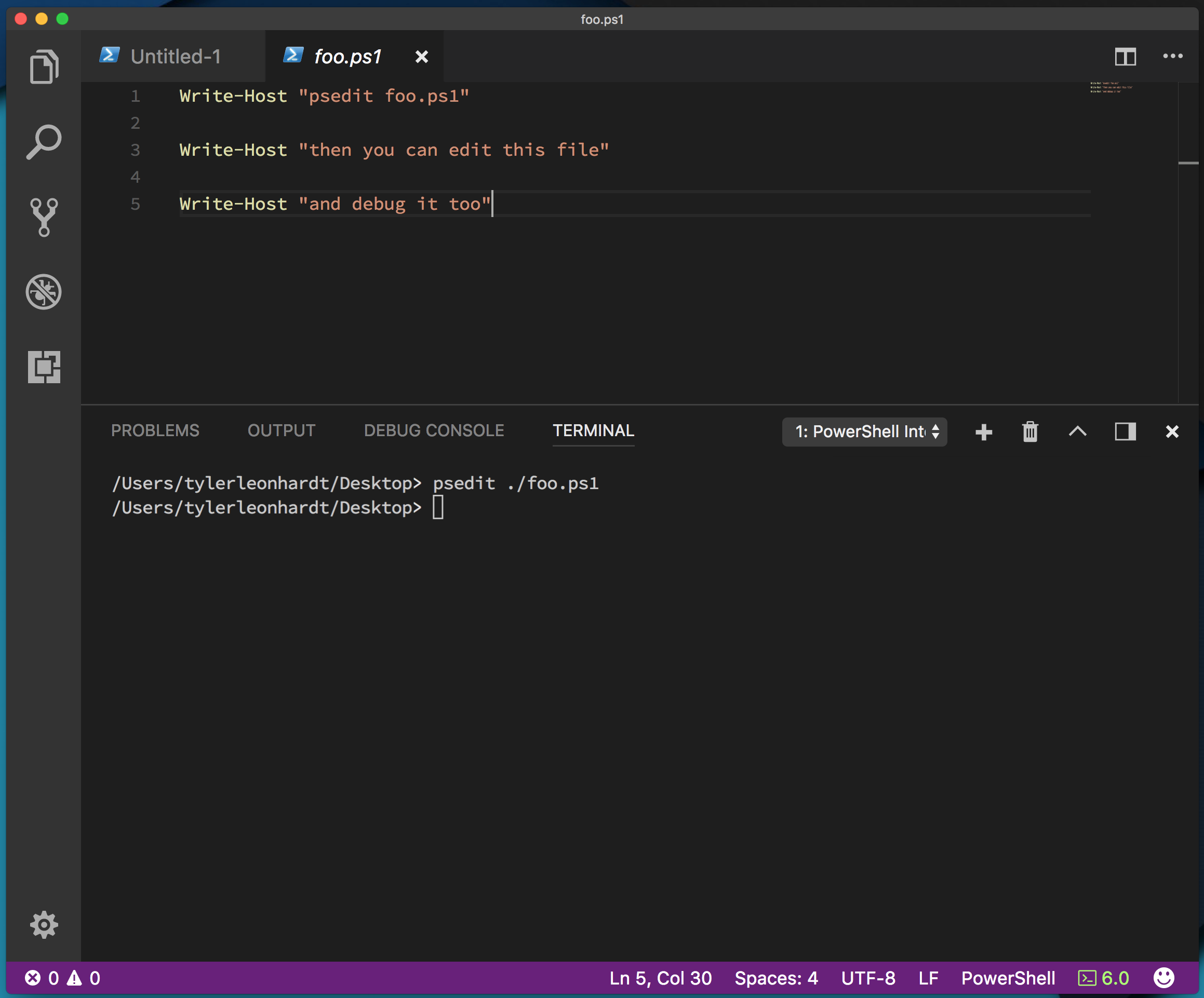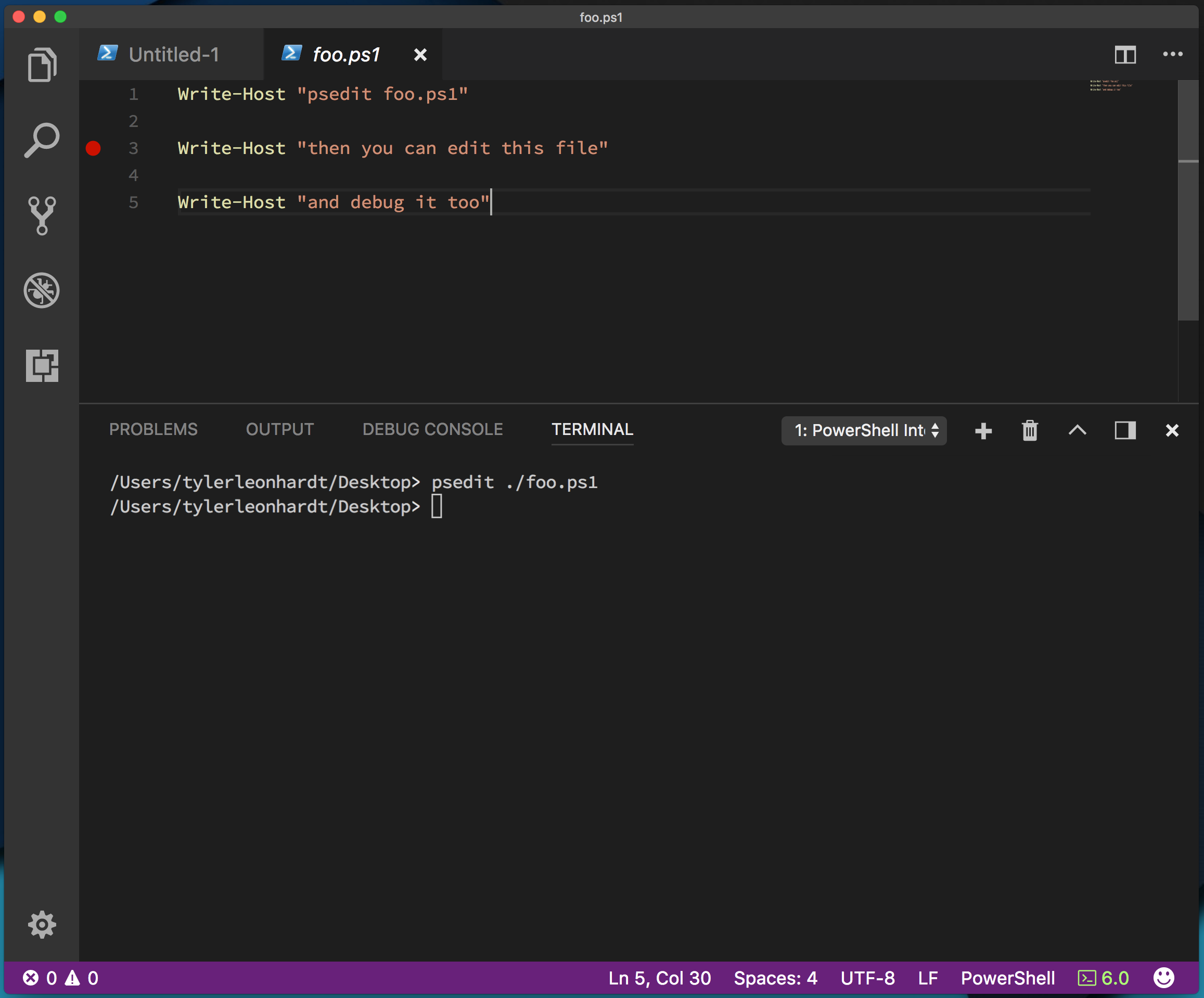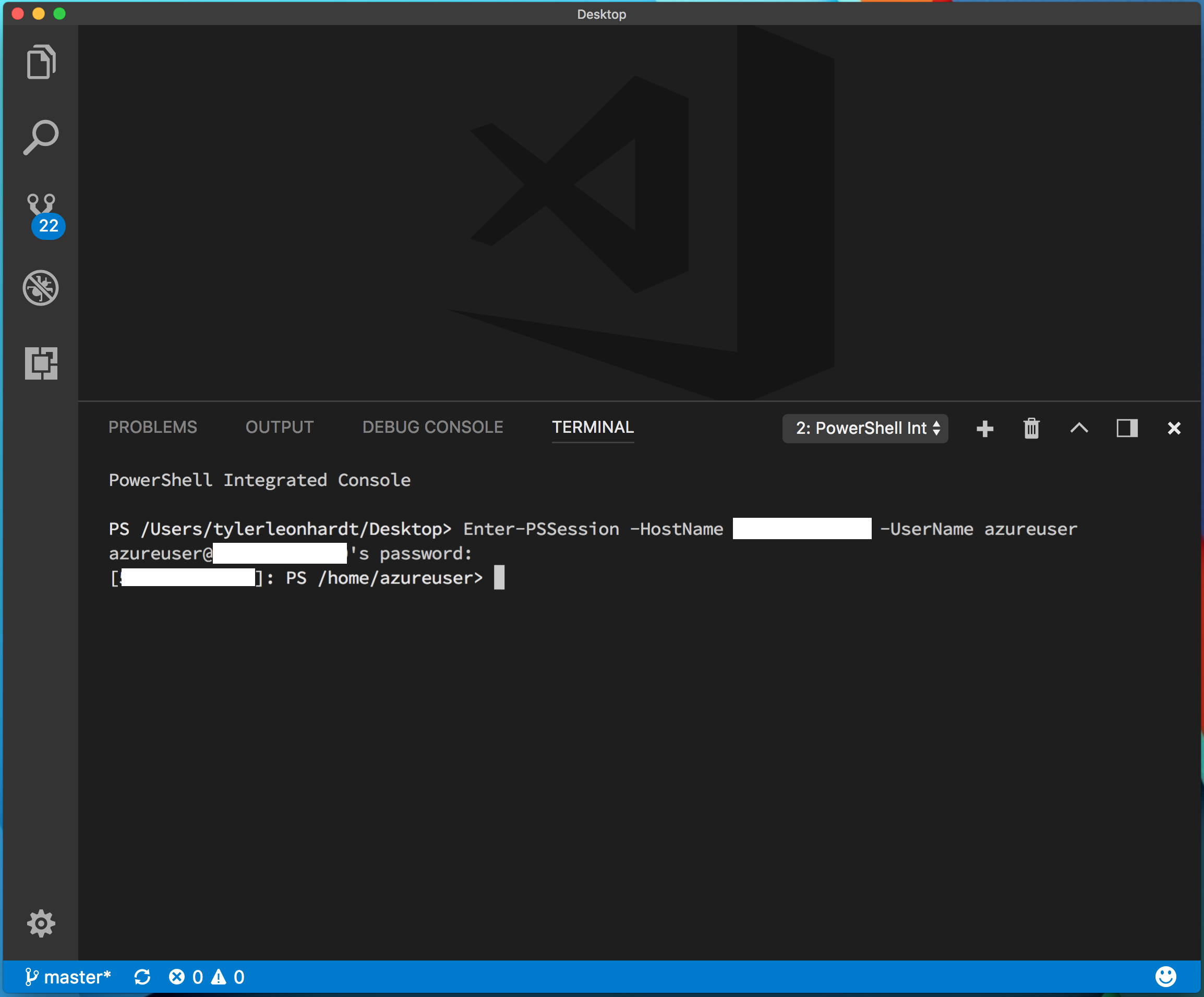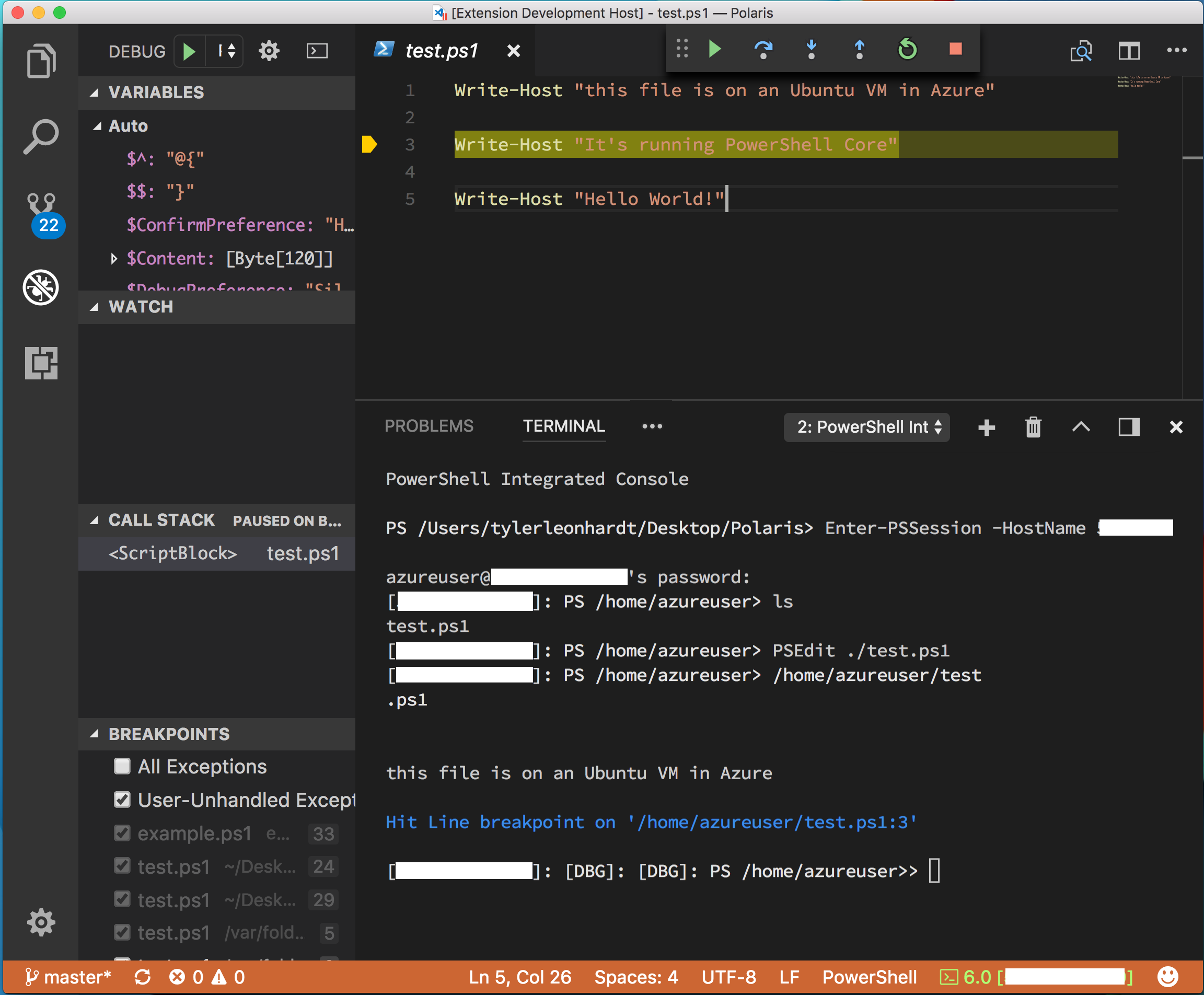4.3 KiB
PowerShell Remote Editing and Debugging in VSCode
For those of you that were familiar with the ISE, you may recall that you were able to use run psedit file.ps1 from the integrated console to open files - local or remote - right in the ISE.
As it turns out, this feature is also availible out of the box in the PowerShell extension for VSCode. This guide will show you how to do it.
NOTE: Open-EditorFile was added in 1.6.0. Pre-1.6.0 it was called psedit. In 1.6.0+ psedit is an alias of Open-EditorFile.
Prerequisites
This guide assumes that you have:
- a remote resource (ex: a VM, a container) that you have access to
- PowerShell running on it and the host machine
- VSCode and the PowerShell extension for VSCode
NOTE:
This works on Windows PowerShell and the cross-platform version, PowerShell Core.
This also works when connecting to a remote machine via WinRM, PowerShell Direct, or SSH. If you want to use SSH, but are using Windows, check out the Win32 version of SSH here!
Let's go
In this section, I will walk through remote editing and debugging from my MacBook Pro, to an Ubuntu VM running in Azure. I might not be using Windows, but the process is identical.
Local file editing with Open-EditorFile
With the PowerShell extension for VSCode started and the PowerShell Integrated Console opened, we can type Open-EditorFile foo.ps1 or psedit foo.ps1 to open the local foo.ps1 file right in the editor.
NOTE: foo.ps1 must already exist.
From there, we can:
and hit F5 to debug the PowerShell script.
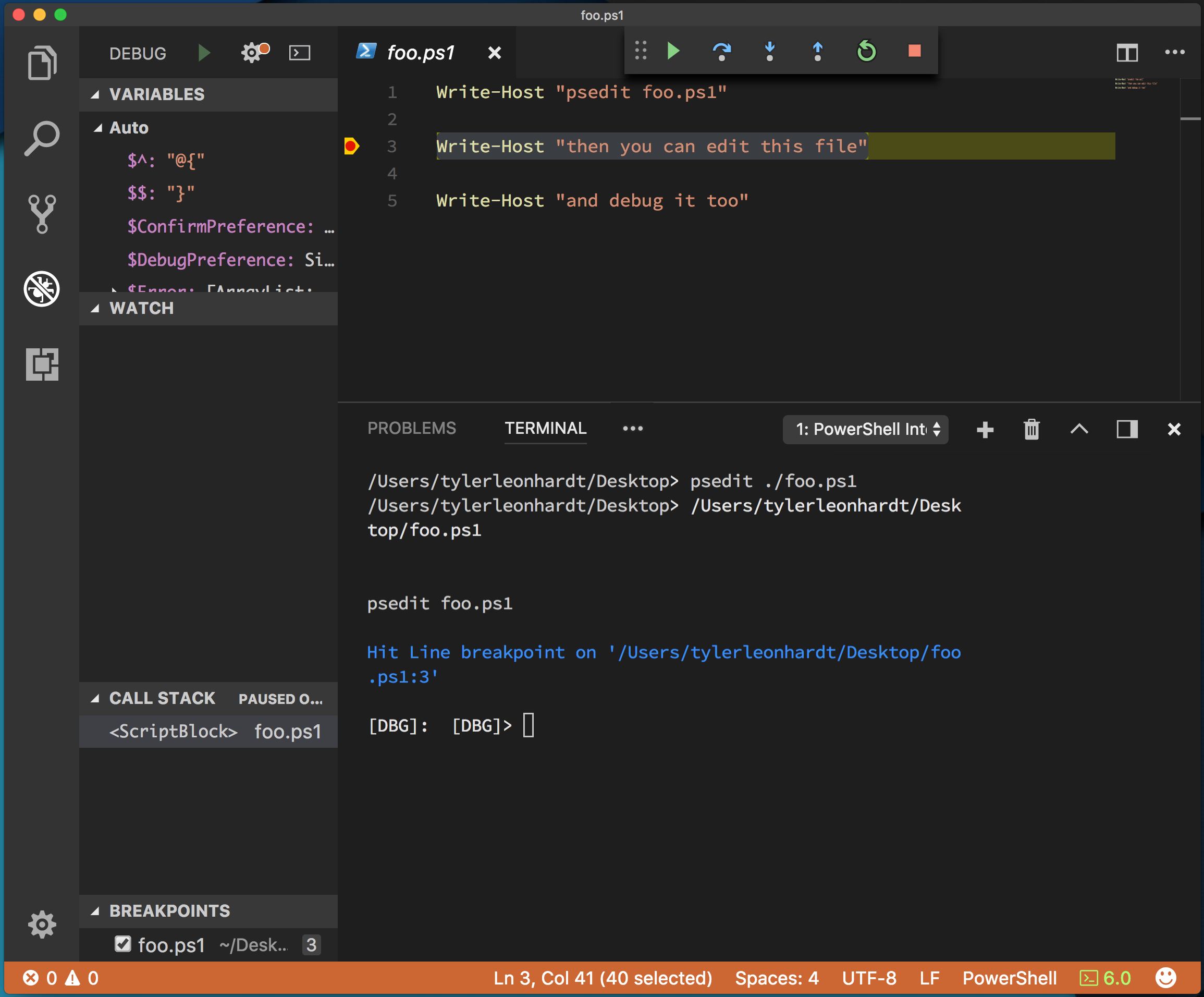
While debugging, you can interact with the debug console, check out the variables in the scope on the left, and all the other standard debugging tools.
Remote file editing with Open-EditorFile
Now let's get into remote file editing and debugging. The steps are nearly the same, there's just one thing we need to do first - enter our PowerShell session to the remote server.
There's a cmdlet for that. It's called Enter-PSSession.
The watered down explaination of the cmdlet is:
Enter-PSSession -ComputerName foostarts a session via WinRMEnter-PSSession -ContainerId fooandEnter-PSSession -VmId foostart a session via PowerShell DirectEnter-PSSession -HostName foostarts a session via SSH
For more info on Enter-PSSession, check out the docs here.
Since I will be remoting from macOS to an Ubuntu VM in Azure, I will use SSH for this.
First, in the Integrated Console, let's run our Enter-PSSession. You will know that you're in the session because [something] will show up to the left of your prompt.
NOTE: I've blacked out the IP address.
From there, we can do the exact steps as if we were editing a local script.
- Run
Open-EditorFile test.ps1orpsedit test.ps1to open the remotetest.ps1file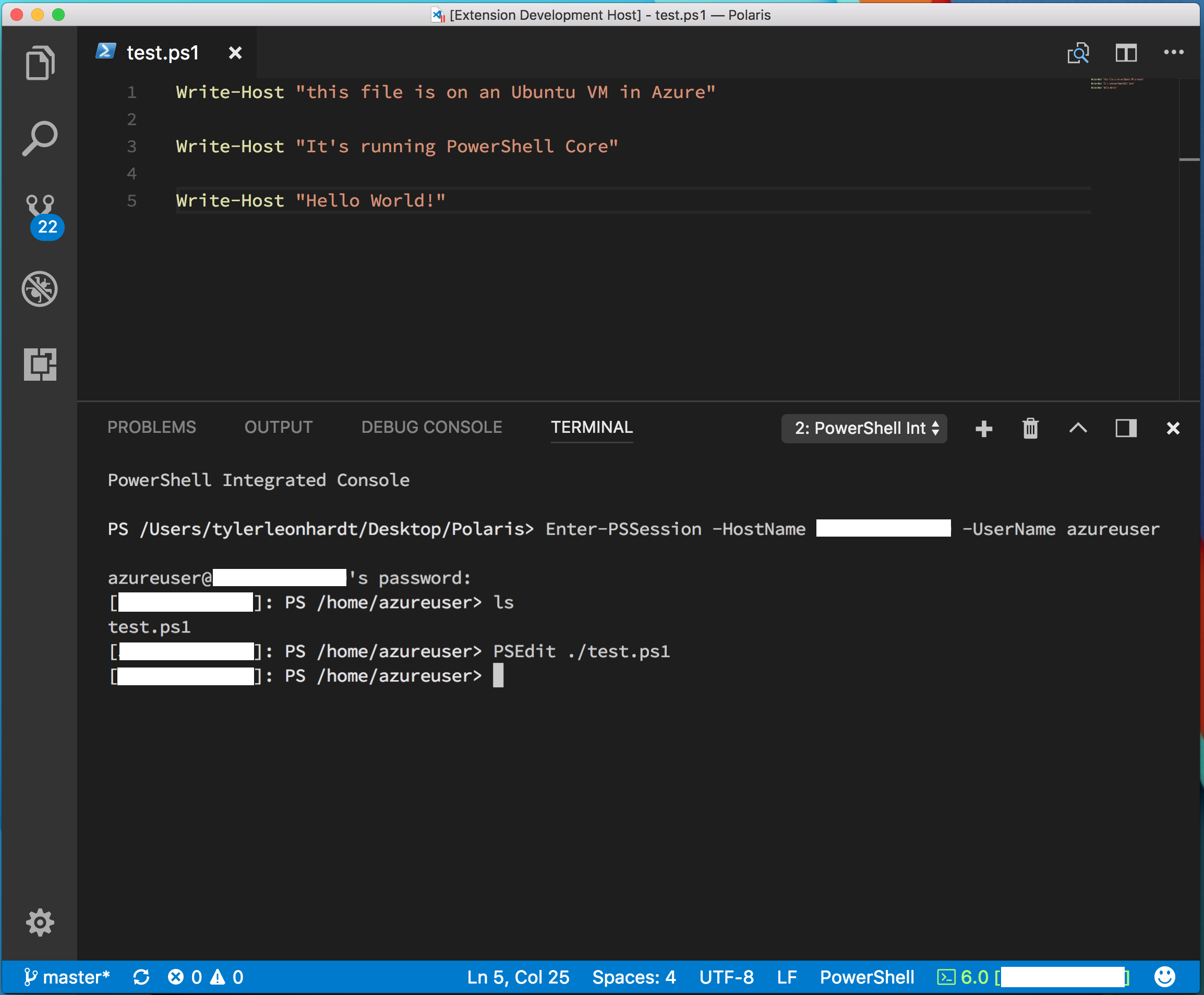
- Edit the file/set breakpoints
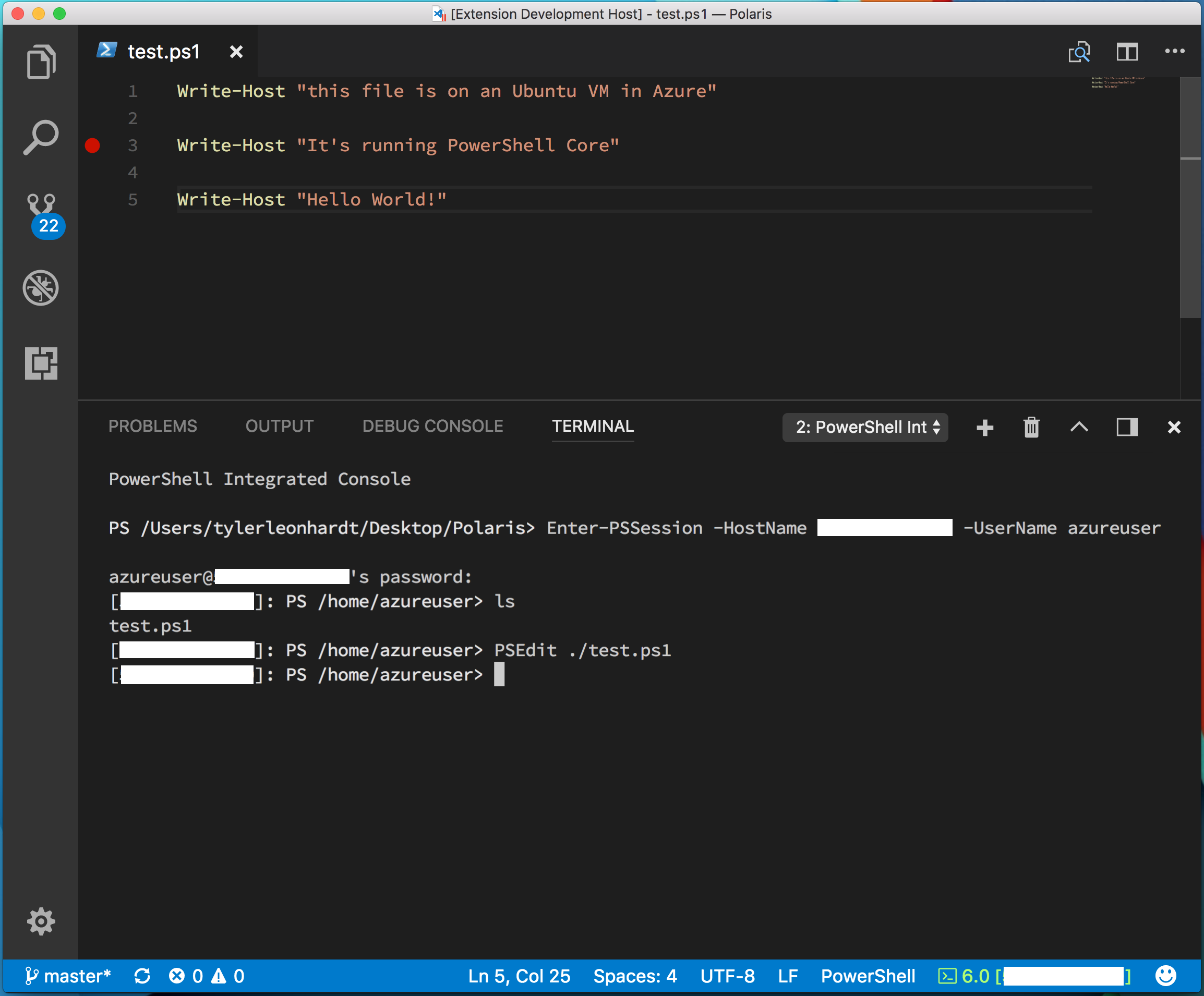
- Start debugging (F5) the remote file
That's all there is to it! We hope that this helped clear up any questions about remote debugging and editing PowerShell in VSCode.
If you have any problems, feel free to open issues on the GitHub repo.
